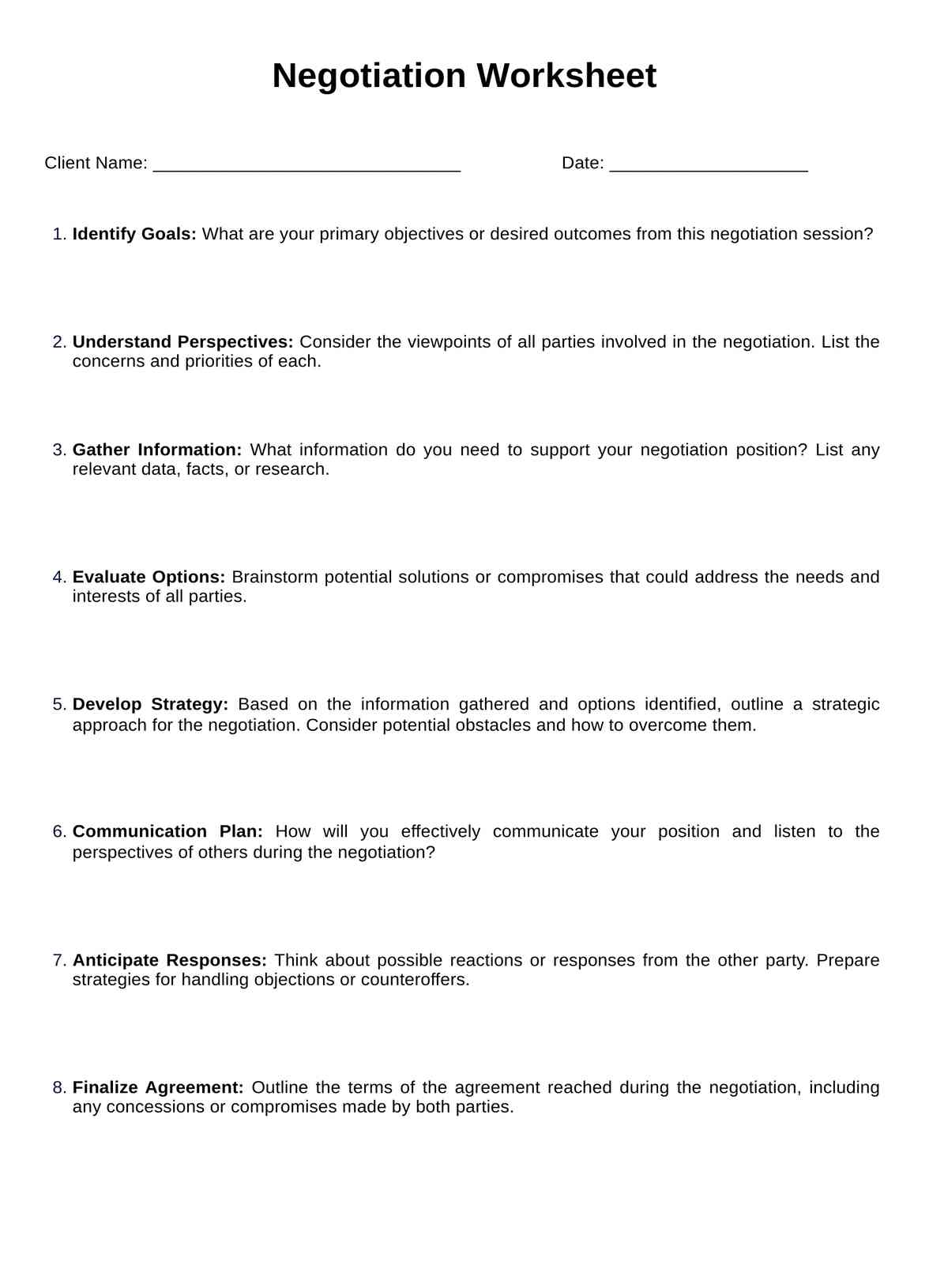Negotiation worksheets help users develop and refine their negotiation skills, enhance communication and social skills, promote understanding of market value, facilitate finding middle-ground solutions, and provide a structured framework for learning and growth.

Negotiation Worksheets
Enhance healthcare negotiation skills with our specialized worksheets. Strategize, communicate and succeed in healthcare discussions.
Use Template
Negotiation Worksheets Template
Commonly asked questions
Negotiation worksheets are versatile tools used in various contexts, including business negotiations, healthcare discussions, educational settings, and personal relationships.
Yes, digital versions of negotiation worksheets are available, such as Carepatron's electronic patient records system, which streamlines the negotiation process and enhances accessibility and convenience for users.
EHR and practice management software
Get started for free
*No credit card required
Free
$0/usd
Unlimited clients
Telehealth
1GB of storage
Client portal text
Automated billing and online payments











